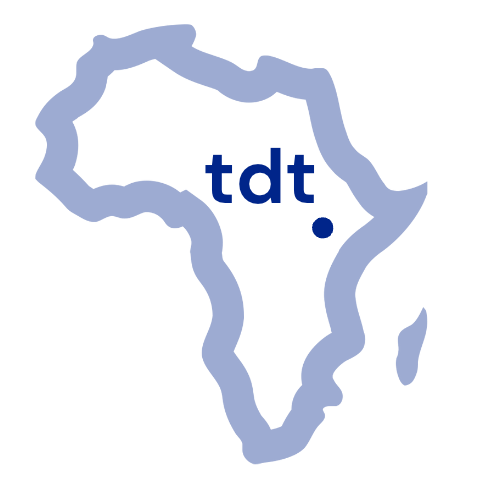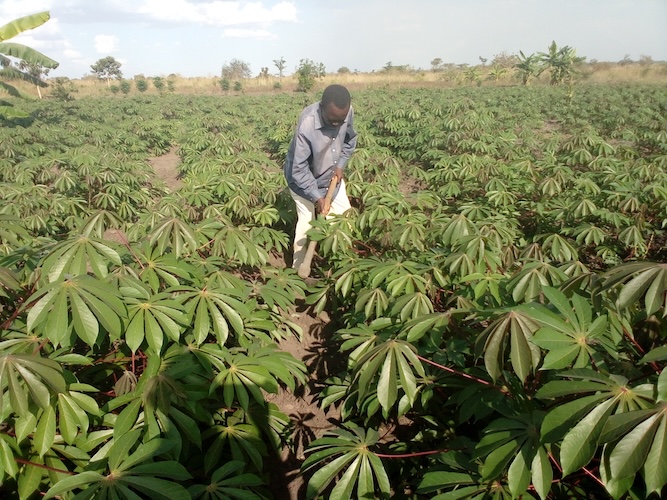
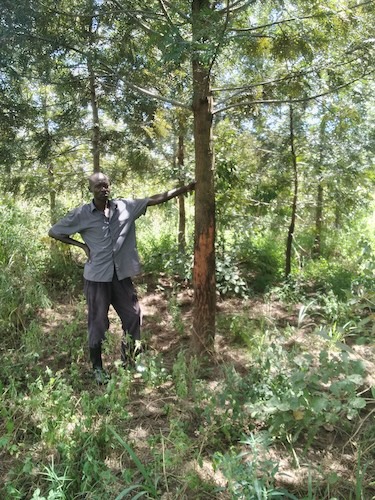
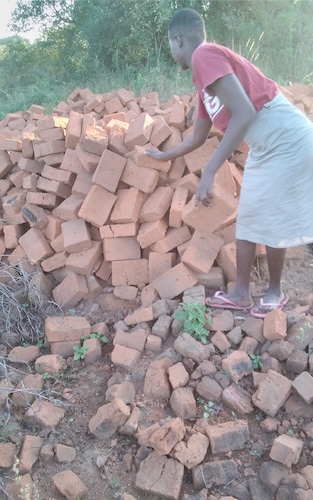
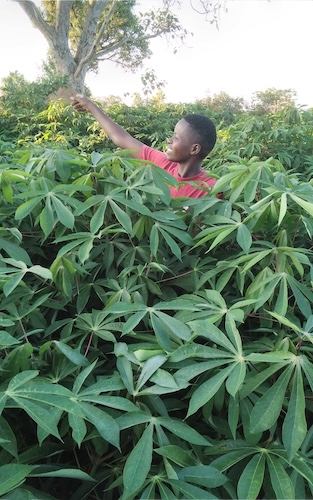
Work on the community development at Okerai A in North Teso has drawn to a close. Farmers have been integrating climate smart agriculture practises to mitigate the effects of pests and diseases. Tomatoes and aubergines have been very successfully grown. Farmers have also been encouraged to practice small scale irrigation using drip bottles and water collection areas to provide water during drier seasons. Good yields are expected from the cassava cuttings although fewer acres overall were planted than planned. Direct beneficiaries have started to share cuttings with other community members at lower prices or for free, which has protected the community at large from the impact of malnutrition and provided income sources over the last two years.
Training was also conducted with representatives of the savings and loan groups (VSLA’s) on establishing Cluster Associations. The aim is to encourage the community to be aware of the resources they have and how they can mobilise at scale across the savings and loans groups to address community issues. Overall VSLA’s have brought a positive impact to the community as they have allowed members to set up small businesses, educate their children and buy livestock. This has been done in groups with 5 group members initially sharing a sheep and then as off-spring arrive these are shared out so that now there is a ratio of 2 group members per sheep. Sheep were chosen as they can cope with harsh conditions such as drought and have a short gestation period.
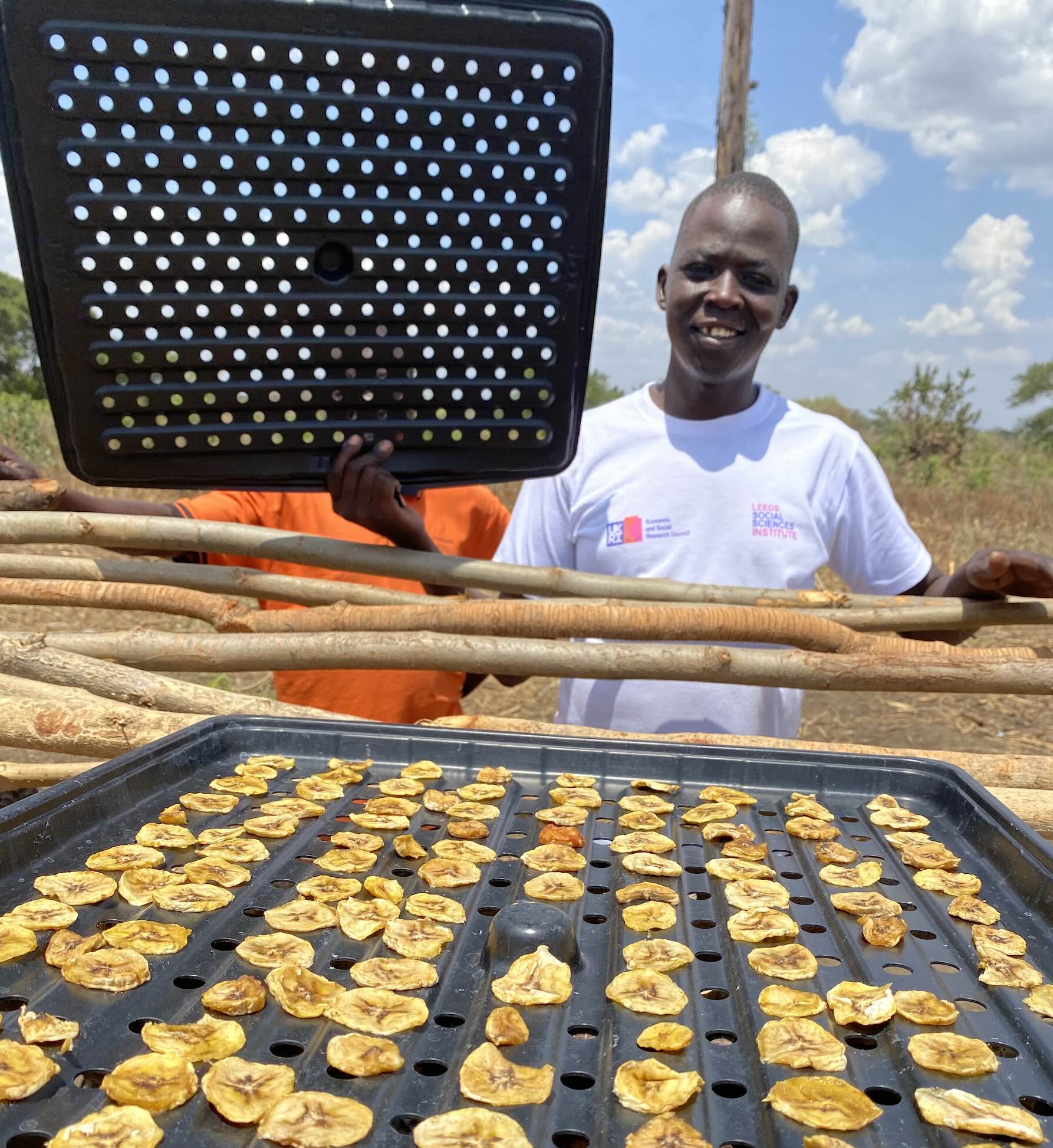
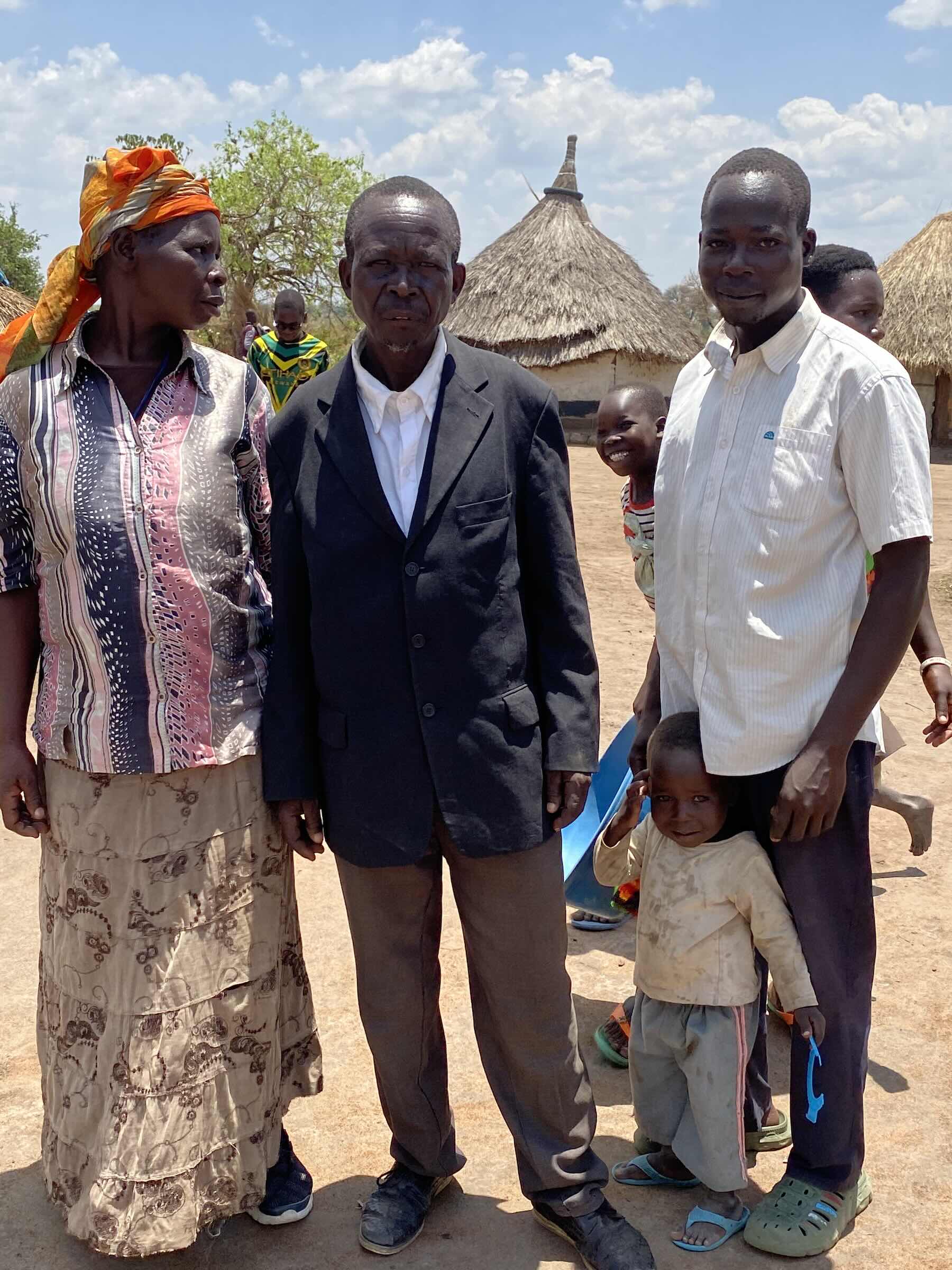
An observation that has come up as a result of the project is the need for nutrition education as many famers will sell the majority of what they grow for income leaving the household still at risk of malnutrition, particularly children and the elderly.
A similar community development programme to Okerai A is beginning to train 300 households in Odiding near the Karamoja border. Transformation in living standards and future prospects can be brought to these communities in a three-year programme costing around £16 per household per year.
Case Study : the PAG programme enables the family to plan for a better future
Ben and Jacinta have 10 children and live in Okerai A. When they first got married they struggled to make ends meet and often worked as casual labourers
on other people’s farms. Ben also spent some time cutting down trees and burning them to create charcoal for sale out of desperation to make a living. Over recent years however deforestation for charcoal has become a punishable crime and ultimately it resulted in Ben spending 3 days in prison before his wife came to the prison and Ben was released on bail.
Once out of prison Ben was fortunate enough to be visited by a sympathetic friend who was able to give him 200,000 UGX (£43) to start a poultry business which had always been one of his dreams. He bought 10 chickens at the local market at a rate of 15,000 per chicken and then sold them in Soroti for 20,000 each earning him 50,000 UGX a week. He gave 10,000 UGX to his wife for household items and saved the rest.
The VSLA and family business training has been a big influence on the family who had been able to save 3,000,000 UGX (£625) by April 2023 after borrowing money to set up a produce business – buying products locally and then selling them for a profit in Soroti town. They have also planted various trees and spices that will give them fruit to sell in town and bought two oxen and a plough with some of the money saved. Overall the PAG programme enables the family to plan for a better future; educating their children, buying more land for production and building a permanent house.




